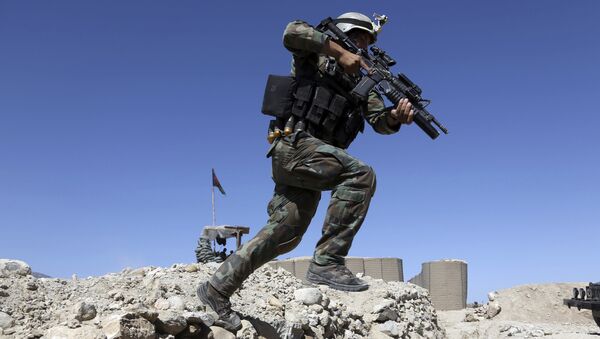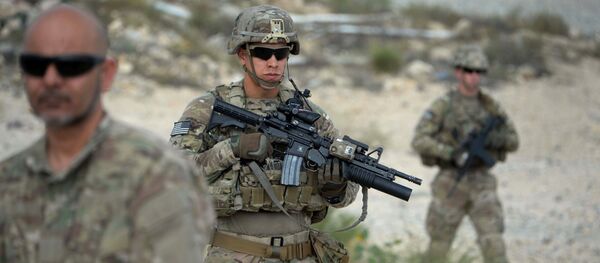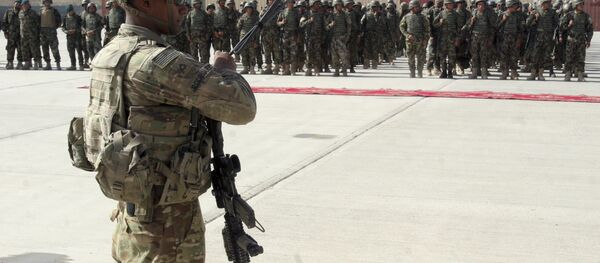MOSCOW (Sputnik) — The increase of the US military presence in Afghanistan may be helpful in the short term, hampering the progress made by Taliban terrorist group and speeding up the training of Afghan forces, but it cannot reform the state or end the war, experts told Sputnik.
MORE TROOPS
On Monday, US President Donald Trump spoke about new US strategy in Afghanistan, promising increased authority to US commanders on the ground and refusing to set a deadline for withdrawal of the US troops, basing it on fulfillment of certain requirements rather than a timeline. The president also said that he would not disclose the number of troops that would be sent to Afghanistan.
"The slightly increased US force presence will help to prop up the existing Afghan state. But it cannot reform that state nor in the short to medium term promote a settlement, since while it can hold cities it is not remotely strong enough to defeat the Taliban in its rural strongholds," Lieven said.
Trump said in his Monday speech that the United States would focus on "killing terrorists" rather than "nation building," adding that Washington would not be telling Afghanistan how it should be governed.
According to Lieven, a settlement would require Washington and Kabul to "surrender a major share of power to the Taliban, and US forces will have to withdraw, or the USA will need to keep troops in Afghanistan for many years — certainly a decade, perhaps much longer — until the Taliban eventually become exhausted and give up their struggle."
Ahmad Khalid Majidyar, a fellow and the director of IranObserved Project at the Middle East Institute, suggested that the larger number of troops may not help win the war, but would help slow down terrorists.
"While sending more troops and modifying the rules of engagement will not end the war in the short term, they can help arrest the Taliban’s momentum and expedite the training and equipping of the Afghan security forces," Majidyar said.
According to Lieven, while both the Afghan government and Washington said in the past they would like to hold talks with Taliban, neither offered the conditions that Taliban could accept.
"Given the deeply divided nature of the Afghan government, it does not seem at all likely that they will be able to do so, since the Taliban will set tough conditions including a share of power, local control, a change to the constitution and the complete withdrawal of US troops," the expert said.
Lieven added that Taliban might have to be given legal status in case they reached an agreement with Kabul, but it is unclear whether the United States might recognize the movement as legal combatants before the agreement was reached.
According to Majidyar, "the popular belief in Washington is that the Taliban has the momentum and will not come to the negotiating table anytime soon."
PRESSURE ON PAKISTAN
Trump criticized Pakistan on Monday for often giving "safe haven to agents of chaos, violence and terror," and suggested that the country had a lot to gain from partnering with the United States on their operation in Afghanistan and stood to lose a lot if it continued to "harbor criminals and terrorists."
"It also remains to be seen if the Trump administration succeeds to convince Pakistan to stop its support for the Afghan Taliban – something that the previous administrations of Barack Obama and George Bush failed to achieve," Majidyar said.
The Pakistani Foreign Ministry said on Tuesday that it was disappointed by Trump's statement and stressed that the United States was ignoring the sacrifices made by Pakistan in its effort to counter terrorism.
Afghanistan has been ravaged by the conflict with the Taliban, a major Islamic fundamentalist political movement in the 1990s, which held power over a large part of the country in 1996-2001 before being overthrown. The movement was then able to regroup and regain some of its prominence, waging war against the Afghan government.





